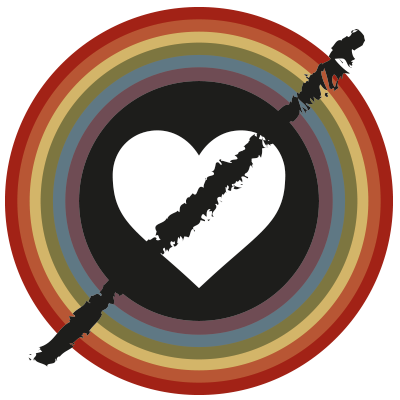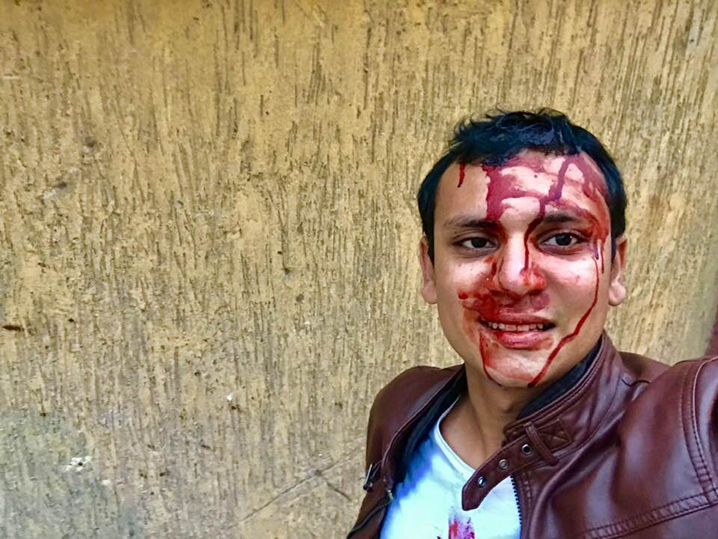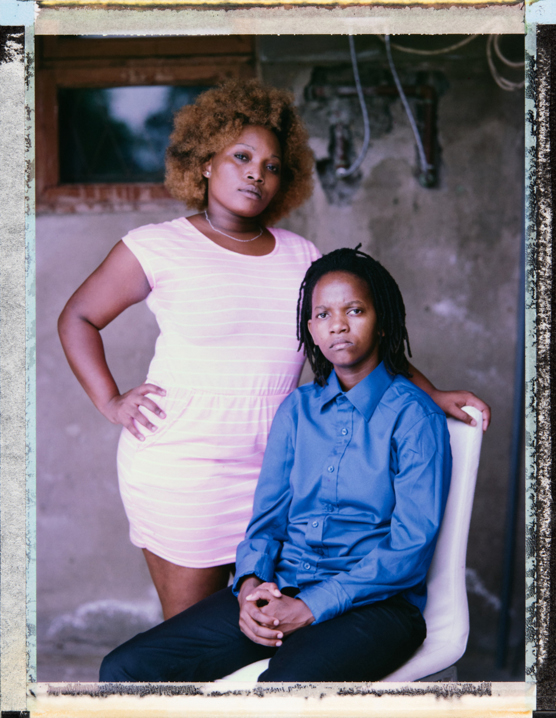Could you give me a brief summary of what the Where Love is Illegal project is about?
The Where Love is Illegal project is a campaign to share stories of LGBTQ+ discrimination and survival from around the globe. Stories that we have documented ourselves, as well as stories that have been submitted by contributors to the campaign largely through online platforms. The stories that we document ourselves are documented by our team, lead by Robin Hammond, an award-winning photographer and founder of the project. These stories are done in, I believe twenty countries. We have met with over 200 individuals at this point. All the stories are hand-written by the individuals who are sharing them, and they are done without prompt, or editing, so it’s their own words that are represented. The pictures are made through a collaboration between the photographer, Robin Hammond, and the subject. So they [the subject] have a direct role in choosing how they present themselves, how they pose themselves, everything. So it gives as much control in presentation to the subject as possible.
What specifically prompted the creation of this project? Why specifically did you get involved with the international LGBTQ+ community, or the community as a whole?
Ever since I was a teenager, I have been active in some way in advocacy and for LGBTQ+ rights; and at the end of the day, I’ve never understood where this discrimination comes from. That someone could be rejected from their own family, their own community, for something that’s so natural; as cliché as it is to say, loving who you want to love, or wanting to present yourself how you want to present yourself. That is something I have always been really passionate about. That subject matter is why I am involved with Where Love is Illegal specifically.
A little bit about the campaign [creation], Robin Hammond was inspired to begin the campaign while working on a different project, I think it was Nigeria, where he traveled to meet four young men who had been arrested and attacked by their community for being gay. It was after meeting those men, that he was inspired to work on this campaign. It started off as just a few people in Nigeria, then expanded to a couple more countries in Africa, as is now a global campaign. We have now been to five continents, and nearly 20 countries.
“It all started when I posted a picture on facebook holding a cake and celebrating my last session of chemotherapy; the caption accompanying the picture read “I survived Cancer for the third time”. Shortly after posting it, the picture was “loved” 20,000 times and was shared 10, 000 times, and that’s how my facebook profile became known. People started visiting my profile in order send me messages of solidarity and support; however, I am openly gay on facebook.
Would you say intersectional identities and issues are important when getting involved in the international LGBTQ+ community, and if so, why?
I would say we don’t specifically focus on intersectionality, because we’re more specifically interested in presenting the experience. We present it from an individual level, and so it really becomes how someone chooses to share their story. So if intersectionality is a part of their story, then it’s included. That has become, not a kind of stated narrative, almost an underlying narrative with the communities and the stories that we are really trying to focus on. This has been reflected when trying to focus on populations that have high-risk of H.I.V. and A.I.D.S.
Why is this cathartic-type outlet so productive for LGBTQ+ rights, and human rights as a whole?
Well, it’s just that storytelling for anyone and everyone, [holds] something very liberating about it, something very important and powerful about it. When you share your own story, and when you choose how to share your own story, you’re controlling the narrative around your life. For so many communities, especially for marginalized ones, having control over your own narrative is so very rarely the case. Even in the best-case scenarios, you’re still put through a processor. So we try to give as much of that control to the people whose stories we are sharing as we can. That’s very important for us.
Who would you say this project is “for”, if anyone?
I think this project’s for everyone. We don’t try to limit who we’re talking to, we want to try and reach the widest audience possible. In some ways, it truly means the widest audience possible, because of partnerships with large organizations like The New York Times and National Geographic. We’ve reached an audience through social media and traditional media of over 250 million people. We’ve been able to engage people of the LGBTQ+ community, people supportive of the LGBTQ+ community and also those who are firmly against LGBTQ+ people and rights. By doing that, we don’t reach everybody, we don’t always change hearts and minds, but sometimes you do, and that’s important. But we also do work in targeting towards the LGBTQ+ community, because we can get the support of those who will get to hear the stories that they relate to. A lot of people don’t hear experiences, especially from the global south. So they don’t know what other people have experienced because these narratives are so hidden. That’s why we want to speak to that audience as well as people of power and influence who can hopefully change laws and change perceptions on a more legislative and legal scale.
“I’m Joana Macucule, better known as Jo and my partner is Claudia Mauss. We met at a party of a mutual friend. A few days later we started dating in April 2012. Our relationship, likes several others consisted of ups and downs. But in our case it was because we were a lesbian couple. A negative episode that remarked us and determined the history of our relationship all began when Claudia’s mother discovered that her daughter was dating a person of the same sex. She was expelled from the house and I had to take responsibility and take Claudia to live with me at my parents’ house.
Are there any short-term and long-term goals for the Where Love is Illegal project, or any changes or events coming up that you would like to mention?
So we are always working and looking for new stories and projects to pursue. Specifically, we are hoping to share stories from the U.S. about surviving conversion therapy in the near future; because we think those narratives are really important to pursue, including in the U.S. It should be a crime that this is still possible in this day and age. It’s illegal in two-thirds of the states, and conversion therapy is something that is absolutely barbaric. We hope that sharing these stories can reach more people, and also reach influencers, and help get some laws changed. It’s unfortunate.



